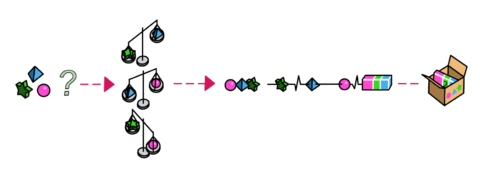Knowledge-Focused Decision-Making
 I’d like to share a real story about moving a biopharma team from cross-functional conflict to creative problem-solving. By thoughtfully applying concepts from cognitive science and decision strategy, a team member can focus a group on the knowledge that counts for making sound decisions.
I’d like to share a real story about moving a biopharma team from cross-functional conflict to creative problem-solving. By thoughtfully applying concepts from cognitive science and decision strategy, a team member can focus a group on the knowledge that counts for making sound decisions.
Understanding how the brain naturally comes to conclusions helps you guide R&D groups through contentious decisions. Knowing that you don’t see the whole picture keeps you from unproductive conflict. Arraying all the options opens up the team’s thinking. Homing in on the key information saves time and money. Using the combined knowledge in the team leads you all to better decisions.
Here’s what we recommend for teams facing complex decisions:
- Observe the way differences in knowledge make people primed to take different actions.
- Reframe your own ideas as “options I see” instead of “solutions I know.”
- Pool team knowledge to structure decisions as choices between options.
- Specify the information that the team would find compelling to eliminate options.
- Efficiently produce robust data.
